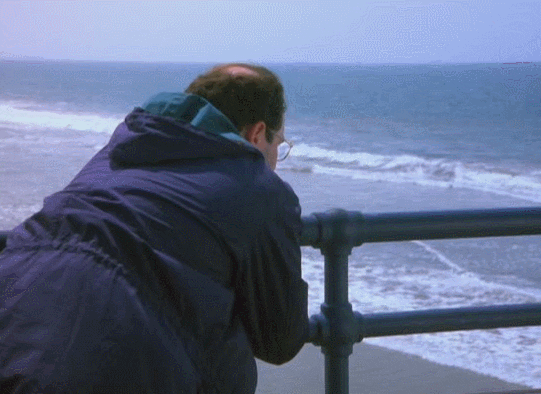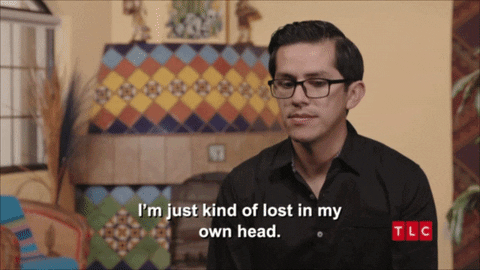
It’s a known fact that humans make mistakes, it would be concerning if we didn’t. Failing helps us better understand how to overcome obstacles and learn to do better next time.
The hard part comes down to realising that we have indeed failed and accepting it. The human brain takes failure hard, sometimes to the point that it completely shuts it out, denying it completely.
Everyone has different ways to cope when it comes to admitting failure and finding ways to overcome it. I, for instance, was very hard on myself for quite some time and I didn’t take failure easy. When I realised that I had made a mistake I bounced back fast because I like to think that I’m a quite resourceful person, but that didn’t stop me from overthinking all the steps I had taken and re-living where I had gone wrong.
Work mistakes can be even worse than personal ones. While the latter generally affect only ourselves and in some cases our immediate family and friends, work failures can have a bigger impact. In this article, we’re going to share some tips and tricks that might be able to help you get over your work mistakes and, most importantly, realise that making a mistake is not the end of the world. Sometimes we need to take a little crash to realise the whole lot of other options that are out there.
Accepting your mistake
Taking responsibility for something that has gone wrong is difficult. Work reputation takes some time to build and some professionals believe a little downfall could potentially end up in being let go. Living with this constant fear is not healthy.

source: Giphy
Companies don’t hire robots, they hire humans with their qualifications and flaws and a common one is that sometimes we fail.
Your mistake doesn’t define you
Bear in mind that making a mistake does not determine who you are as an individual or your professional capabilities. Don’t make snap judgements about your worth or value on just one slip up.
Take ownership
It’s easy to make up excuses or ways to not take ownership of your failure. Realising that you are at fault is the first step in finding out how to proceed.
Talk about it
Find your work buddy or someone that you’re close with at the office and explain the situation. It’s good to explain the issue to someone that will understand the struggle and will be able to help you out and guide you into what steps you should do next.
Your boss should be the next person in line. You shouldn’t feel bad about reporting a mistake; as we have said along with the article, failure is just part of the process. Ask your boss for a 1:1 or a quick meeting and lay the cards on the table. They’re gonna appreciate the honesty and, if they’re a good leader, they’ll do everything in their power to help you find ways to solve it.
Overthinking
It would be nice to tell our brain to keep quiet and let us be, but, unfortunately, that’s not how it works.


source: Giphy (left and right)
Even after the mistake is solved, our brain turns and turns thinking about it, replaying what we did and where we went wrong. It’s not a bad thing per se, as you might spot where you failed and do better in the future, but thinking about it too much can become a problem. Being clouded by one mistake can affect our productivity and effectiveness at work and potentially lead to more mistakes and overall stress, which can drive to burnout.
Find a distraction
One of the most efficient ways to stop yourself from overthinking is finding ways to keep your mind occupied with other more laid back and fun activities. Get together with some friends, go out for a run, read, watch a TV show, or meditate.
Don’t wait for perfection
Striving for perfection is impossible, unrealistic and crippling. For better peace of mind and body, instead of aiming for perfection, set ambitious and reachable goals. Challenging ourselves can help us be more engaged and productive to get things done and do them right. By setting ambitious goals you’ll still get the thrill to work hard to reach them.
Learn to say “I don’t know” or “No”
“Can you do this?” If you get asked this question and the answer is no, say it; you don’t have to know everything related to your field of work. Interpret the “I don’t know” and “no” as signals to get to learn new things.

source: Giphy
“I don’t, but I’ll look into it” is a fairly good answer because you’re accepting that you have no or barely any knowledge on the subject but you’re willing to take some time to look at it. The other person asking will appreciate the gesture and you’ll get points for being a resourceful person that can overcome difficult situations. It’s a win-win situation.
Saying “no” and “I don’t know” is a good and admirable thing. Setting high expectations can lead to failure, which is why it’s always good to play it safe and learn to say “no, but let me take a look”.
Mistakes can make us feel like we’ve taken 10 steps back in our personal or work development. We paralyze ourselves by analysing why we have made an error and trick our minds into believing that it’s a permanent thing and there’s no way back out of the hole. But that’s not the truth; it might take more or less time, but there’s a set of stairs out of the rabbit hole that lead to new learnings and professional and personal development.
Next time you find yourself in the middle of a problem, take a deep breath. Humans make mistakes, it’s not the end of the world. Don’t beat yourself up, instead, put things into perspective and find ways to overcome the situation.






0 Comments